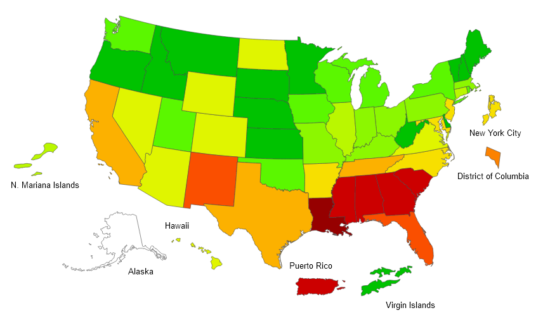Pharmacists aren’t doctors? Plus new ad rules, red-wine danger, and more
22 Nov 2023
Posted by Andrew Kantor
FDA’s big new rules for pharma TV ads
The FDA has released new rules for prescription-drug ads that run on television and other video streaming media — collectively called “TV format*.”
The gist is that companies can no longer play fast and loose with the side effects they list.
Like six-year-olds saying “I’m not touching!” in the back seat, pharma has gotten around the rules about listing side effects by using tricks like rattling them off at 20x normal speed while music plays in the background.
The FDA has had enough. Now those side effects have to be understandable. And just like six-year-olds who need the nuance explained, the agency took 87 pages to do just that.
There are five new standards that “help ensure that the major statement is presented in a clear, conspicuous, and neutral manner.”
- No jargon: [T]he information must be presented in consumer-friendly language and terminology that is readily understandable.
- No mumbling or speed talking: The audio information in the major statement must be at least as understandable as the audio information presented in the rest of the ad.
- Put it in writing: The information presented in the audio portion of the major statement must also be presented concurrently in text for a sufficient duration to allow it to be read easily.
- No tiny text: The information in text must be formatted such that the information can be read easily.
- No distractions: The ad must not include audio or visual elements during the presentation of the major statement that are likely to interfere with comprehension of the major statement.
* “TV format,” because you know companies would try to skirt the rules if the FDA got too specific — although advertisers on TikTok will probably claim that vertical ads aren’t “TV format.”
How dare you call yourself “Doctor”

Physicians are getting their stethoscopes in a wad because nurse practitioners can earn doctorates and thus be entitled to be called “Dr.” Oh no no no, say the physicians, only medical doctors should be able to use the term “Doctor” in the healthcare world.
Florida, in fact, was considering barring non-physicians from using “Doctor” in clinical practice. Similar “not-a-doctor” bills are under consideration in California, Connecticut, Florida, Massachusetts, North Carolina, Texas, and Wisconsin.
Nurse practitioners and physician assistants* argue they deserve to be able to practice to the fullest extent allowed by their education and credentials, and that — like anyone who’s earned a doctorate — they should be able to use the title conferred on them.
“It has nothing to do with ego or wanting to be something I’m not,” [one doctor of nursing practice] said. “If I worked hard and earned a doctorate, I can use the title of ‘Dr.’”
If only there was some other designation an MD could use to indicate that he or she was an MD. Perhaps MDs could use some other letters to indicate that they’re MDs. Surely MDs can come up with something to differentiate themselves from people who aren’t MDs. Maybe they can ask the DDSs.
* Yes, we’re aware the article left off a rather significant group of doctorate holders.
Flu ‘soars’ in Georgia
Georgia is one of seven states where the latest CDC data shows flu cases are at the highest. (The others are Alabama, Florida, Louisiana, Mississippi, New Mexico, and South Carolina as well as Puerto Rico.)
The flu season is a little early this year — typically it starts big-time in December, but last year October was kickoff, so November isn’t too unusual.

The good news is that “the version that’s been spreading the most so far this year usually leads to a lesser amount of hospitalizations and deaths in the elderly.”
Another benefit of the flu vax
It can reduce your risk of heart attack. Mm hmm. That’s what an analysis of five studies and more than 9,000 patients by Iranian researchers found; it was published in Nature’s Scientific Reports.
Participants who received the flu vaccine saw a notable reduction in the occurrence of major cardiovascular events, with 517 cases compared to 621 cases in the placebo group.
There was a decreased risk of heart attacks in vaccinated patients and a significant reduction in cardiovascular death events.
Why? Their hypothesis is that vaccination might reduce inflammation, or possibly “ensuring the stability of atherosclerotic plaque, which can become destabilized during the flu.”
Health-system pharmacists, take note
The FDA is reminding/warning you not to use Cardinal’s new (since June) Monoject syringes with patient-controlled pumps. Cardinal recalled those “due to incompatibility concerns with syringe pumps.”
The older version — called Covidien — are still okay to use. The problem is with the new Monoject syringes.
Red wine headaches explained
As Thanksgiving approaches, we see the usual lineup of food-related news stories. Here’s a different one, though: an answer to the question, “Why do some people get headaches from red wine?”
The answer (per UC Davis researchers) is that red wine contains quercetin, a flavanol in grapes that’s even available as a supplement. But when quercetin mixes with alcohol it becomes quercetin glucuronide, which happens to block alcohol metabolism.
As a result, people can end up accumulating the toxin acetaldehyde […] a well-known toxin, irritant and inflammatory substance.”
And there you have it.


